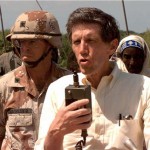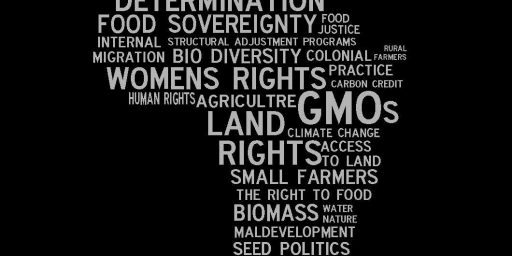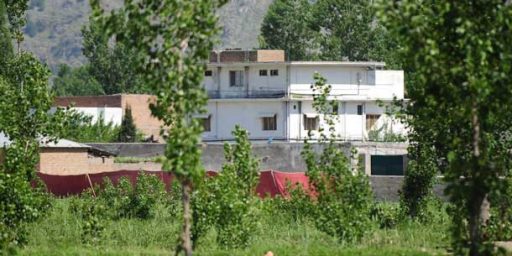Robert Oakley on Somalia, Pakistan, and Afghanistan
 Few Americans know more about Africa and the Middle East than Robert Oakley, whose distinguished diplomatic career included stints U.S. ambassador to Zaire , Somalia, and Pakistan;Special Envoy to Somali; director of State’s Office of Combatting Terrorism; and Assistant to the President for Middle East and South Asia.
Few Americans know more about Africa and the Middle East than Robert Oakley, whose distinguished diplomatic career included stints U.S. ambassador to Zaire , Somalia, and Pakistan;Special Envoy to Somali; director of State’s Office of Combatting Terrorism; and Assistant to the President for Middle East and South Asia.
With help from my colleague Shuja Nawaz, director of the Atlantic Council’s new South Asia Center, I had the opportunity to speak with Ambassador Oakley for a few minutes via telephone. The result is posted as “5 Questions for Robert Oakley” at the New Atlanticist.
He’s more optimistic than most on dealing with the Somali pirates and even more pessimistic than most on Pakistan and Afghanistan. The key ingredient for dealing with all those situations, though, is patience, something in rather short supply.






I agree that patience is often a good idea, and is not a quality that Americans collectively possess in abundance. On the other hand, if you’re the civilian in harm’s way, or are otherwise directly affected by the turmoil, a certain lack of patience is understandable.
Interesting relationship between Oakley’s answers and my post above, James. A fundamental problem is that Somalia, Pakistan, and Afghanistan aren’t states. We just call them that.
At what point does patience becomes procrastination?
I agree having patience in dealing with these situations is a good idea. However patience is not the same as doing nothing. There is a natural development with situations. Sometimes areas of the process can be shorten with some extra effort and sometimes you end up wasting resources if you try to rush it. Sometimes there is a log jam that you need to get inpatient with and break up. All this isn’t black and white which ends up frustrating many Americans because black and white are easier to deal with.
IMO the Somali pirates are to a point that we need to make it clear that they need to cool it or will be taking drastic measure then follow up on the threats if they shrug us off. We need a change up in Afghanistan but nothing all that drastic plus we need to understand it is going to be a long process. We need to show a good deal of patience with Pakistan but again that not the same as doing nothing. We need to come up with creative ways to take on hostile elements in that country without sending it into a civil war.
Quite right. One can’t spend decades working for the State Department, though, and think that way. As you say, one can’t be an ambassador to Ralph.
Dave
I agree with you but I would say that Pakistan is much closer to a state then Somalia and shouldn’t be treated the same. We need to deal with Somalia similarly but not exactly the same as we did with Columbia. We need to build up the central government\alternative group but we have to weed out the corruption while doing so. If we empower the central government\alternative group to fast before we weed out a good deal of the corruption we end up making matter worst. Like Columbia, this is hard to do when you have pirate\drug lords with large sum of money and regional power. For the process to go further we need to deal with these pirates. I could go on and on about the process but the end point is it will take time. Yes we need patience but we need to bust some log jams as well.
Indeed, Pakistan is most definitely a state, it’s just not as big as it’s borders suggest.
Regarding Somalia, I propose a UN resolution giving Ethiopia “protectorate” status of Somalia, and allowing them to militarily occupy the country to enforce stability. The quickest way to a strong, centralized Somali government is from resistance to Ethiopian occupation. Alternatively, we can give it to Italy instead of Ethiopia, but I don’t think that would result in a unified opposition.
You don’t send ambassadors to Ralph, you send them to Ralph’s tribe/clan/ethnic/religious group, which most likely already has a de-facto leader. Just because cartographic boundaries are meaningless in these places, doesn’t mean all boundaries are meaningless. Identify which boundaries have meaning, and negotiate with whomever has authority within them.
That’s not the problem, Michael. The problem is that sending an ambassador to the head of tribe/clan/ethnic/religious group A gets you nowhere in dealing with tribe/clan/ethnic/religious group B, the head of tribe/clan/ethnic/religious group A may not even have much influence with members of his own group, and there may be no way for an outsider to determine these distinctions with any degree of confidence.
The fundamental Westphalian equation is that states deal with states and that states are equal. IMO we violate that at our peril. Further, it is emphatically not true that every one of these groups is equal to a state. There are relative degrees of significance among them.
Simply stated we’re not going to enter into negotiations with every village elder in the world.
Then you either send 2 ambassadors, or you convince group B that they should voluntarily enter into some kind of confederation with A, in order to acquire the same benefits given to group A by our relationship with them.
I’m not so sure we’re going to have a choice. If we start seeing areas like this forming stable, non-state societies, will we be able to ignore them?
We already have merchant shops, news outlets and banks that don’t physically exist, but have a virtual presence across the globe. Does a purely information/knowledge based economy even need a geographic state? Can a group of like-minded individuals collectively establish a common authority among them that is not restricted by geography? I suspect that we’ll have to find answers to those questions in the next couple of decades.
I am not sure how far to go into this or who would be interested. There are a great number of groups in and around Somalia. The first step is to determine which groups have significant power. Remember that they don’t have to be one of the most powerful groups just have enough to work with. Second how strong their leadership structure is and what the morality of that leadership, keeping in mind that we are not going to find anyone that is pure as the driven snow. However there are workable types and not so workable types. Also which groups with a little persuasion could work with what other groups which may or may not include current central or local governments. Once done we would work with, coordinate, and help shape the right groups that will help accomplish our goals. Remember to get to this point that we will have to interact and work with groups to determine who is what. Some groups will be found not to be to our liking and we will have to disassociate with them at some point. All this cannot be done with the traditional State Diplomats. All this takes a great deal of time and mistakes will happen. Unfortunately any mistake that gets notice by Congress or the MSM will not be tolerated. When you are not allowed to make mistakes, it is hard to accomplished anything. The only way not to make a mistake is not to do anything.
Wayne,
So essentially we need a Lawrence of Somalia? I kind of like that idea, actually.
Michael
If you asking if we should treat it as an unconventional warfare (UW) or foreign internal defense situation (FID), I say yes we should. To do it in a traditional conventional warfare way would be costly in many ways. Although I can see ways of using conventional forces to greatly help out the process. However, to do so in a much greater extent than what we have in the past would have political and military implications that many would probably be unwilling to deal with. So that leaves us with the traditional UW or FID models.